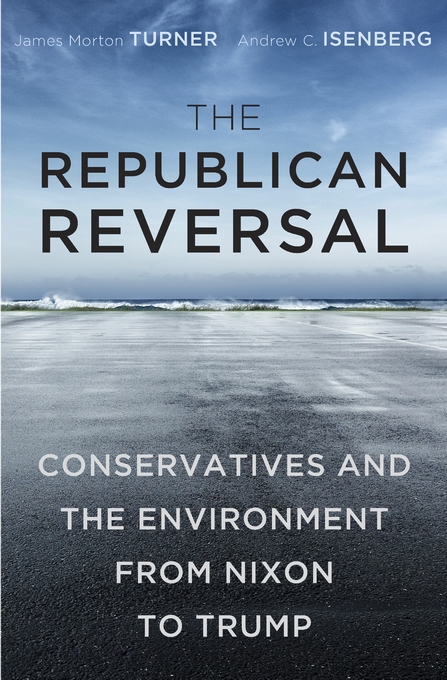
This book explores what appears to be an about-face in the Republican Party views regarding the importance of environmental protection over the last six decades. The fundamental question the authors try to answer is why the Republican leadership, which once introduced historic legislation including the Environmental Protection Act that created EPA in 1970, the Clean Air Act of 1970 and the Endangered Species Act of 1973, has abandoned its support for environmental protection. The Republicans who used to criticize the Democrats in the 1960s and 1970s for obstructing the push for more environmental regulation today question the veracity of anthropogenic climate change. The most recent manifestations of this reversal are President Trump’s withdrawal from the Paris Climate Accord and his proposed 31% cut in EPA’s budget.
The authors attribute the reversal to three factors: (1) an increasingly strong belief in the effectiveness of markets and technological innovation coupled with related concerns that regulations are contrary to America’s economic interests; (2) the growing concern that scientific facts are uncertain and an inadequate basis for policy-making; and (3) a conviction that environmental improvement requires global action which threatens America’s sovereignty. These views are reinforced by self-interested, industry-funded think-tanks and religious Christians who have waged a misinformation campaign aimed at discrediting federal environmental regulations. Their goal has been to reframe the environmental debate around conservative values rather than scientific expertise.
Overall, the book does a great job of explaining the epochal moments in America’s environmental movement. It falls short, though, on two counts. First, the authors do not discuss how the Republican leadership expects to justify its position on climate change as the impacts of CO2 emissions become more visible in the United States and the nation is increasingly isolated at international forums for not doing enough. These questions were not as relevant in the past decades as they are now. We have seen how the United States was isolated on the issue of the Paris Agreement at the recent G20 meeting. Second, the authors do not address the question of why the Trump administration believes the Republican Party’s anti-environment agenda makes sense politically, even though a majority of Americans not only believe that climate change is occurring, but also want the government to take strong action to combat it.
